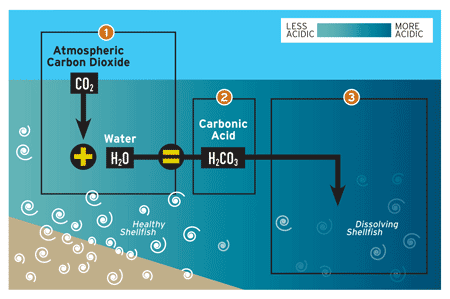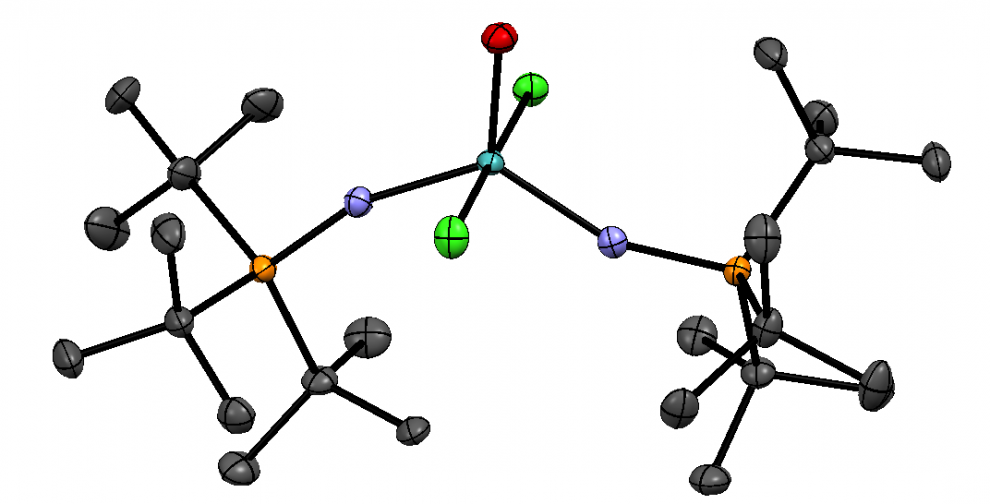Freak snowstorms in Africa, unusually hot winters, and more natural disasters. Events like these are becoming more frequent occurrences than ever before, and so are the words to explain them, Climate Change.
Although natural disasters on land may get more attention, one of the largest concerns should be is what happens in the ocean. Ocean acidification, due to the increased levels of carbon dioxide in our atmosphere, has one of the most significant impacts. Our ocean is a carbon dioxide sink, as it absorbs over 25% of the carbon dioxide that we emit into the atmosphere.
Due to the ocean dissolving more carbon dioxide, carbonic acid concentrations have also increased, resulting in lowering of the pH. Dr. Trional McGrath is a Chemical oceanographer from the National University of Ireland and she predicts that ocean acidification will increase by 170% by 2100!

Figure 1: The chemical process of Ocean Acidification by increasing carbon dioxide emissions. Source: CeNCOOS
Now, why do we care? We don’t live in the ocean so why would it effect us?
Carbonate ions are essential building blocks for marine life when forming shells. Figure 1 shows that as the H+ concentration increases, more of the carbonate ions are going to be tied up as carbonic acid. This results in less material for marine life to make their shells and other structures from.
Figure 2: A Sea Butterfly (i.e. Limacina helicina). An important food source in the ocean. Source: Mashable
A study was done where they placed Sea Butterflies in an ocean environment with the pH that is predicted for 2100. Their shells were essentially dissolved in as little as 45 days! Figure 3 below shows this process over that timeline. Even if only a few species are really effected by the pH change, this could have detrimental impacts all the way up the food chain, eventually effecting human’s supply of food!

Figure 3: The Sea Butterflies shell dissolving over 45 days in the predicted pH of the ocean in 2100. Source: TED
This is only one example of the dramatic effect that ocean acidification can cause, but everything from coral to predators of the sea are at risk. If we don’t do something to help reduce the current rate of carbon dioxide being dissolved into our ocean, then in the not too distant future, we won’t be able to recognize the oceans we once knew.
~ Amanda Fogh
“The excess carbon dioxide in the atmosphere that is turning the oceans increasingly acid – is a slow but accelerating impact with consequences that will greatly overshadow all the oil spills put together. The warming trend that is CO2-related will overshadow all the oil spills that have ever occurred put together.” ~ Sylvia Earle (Marine Biologist and Explorer)
